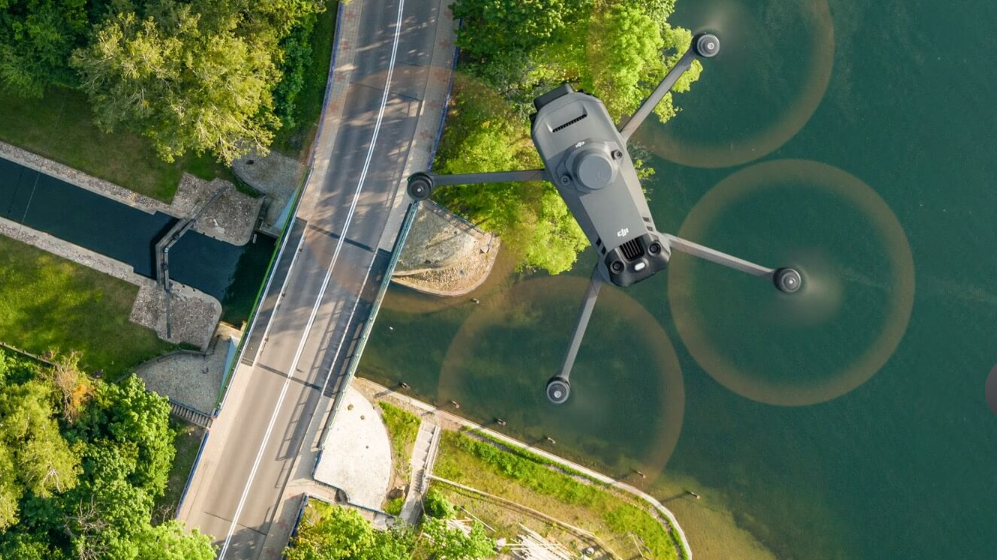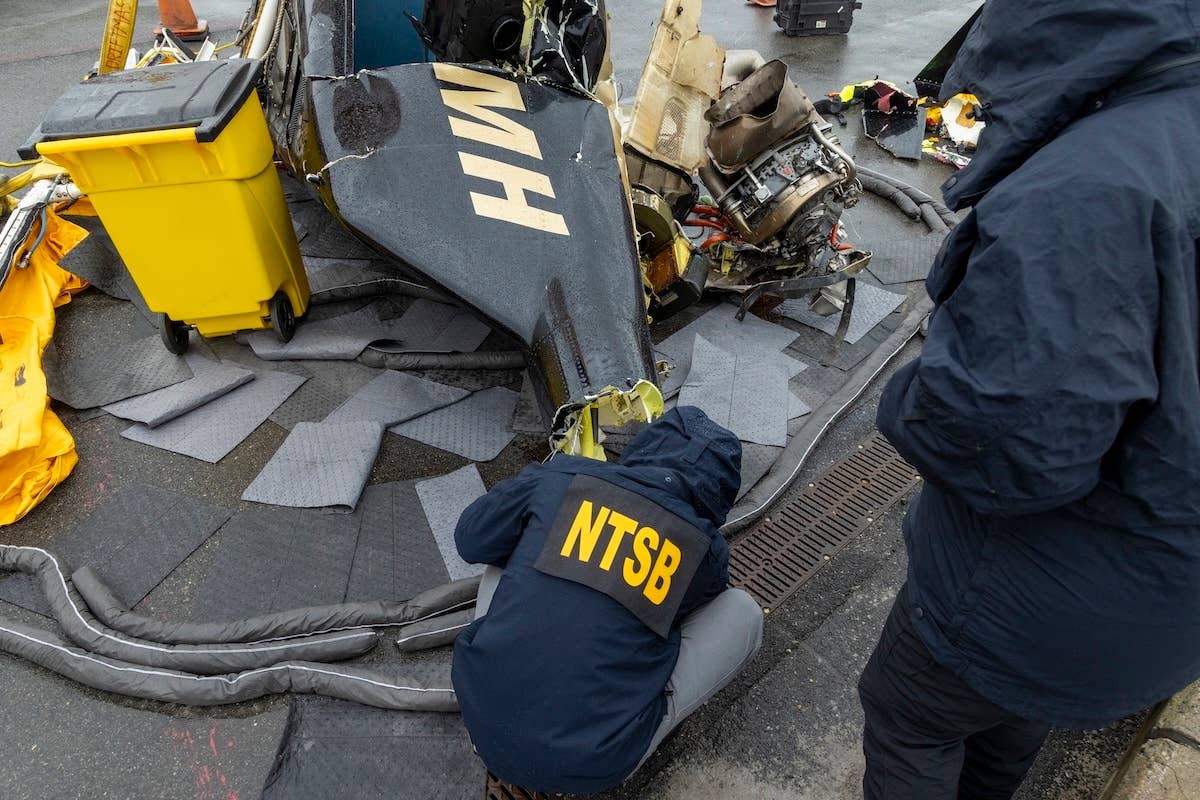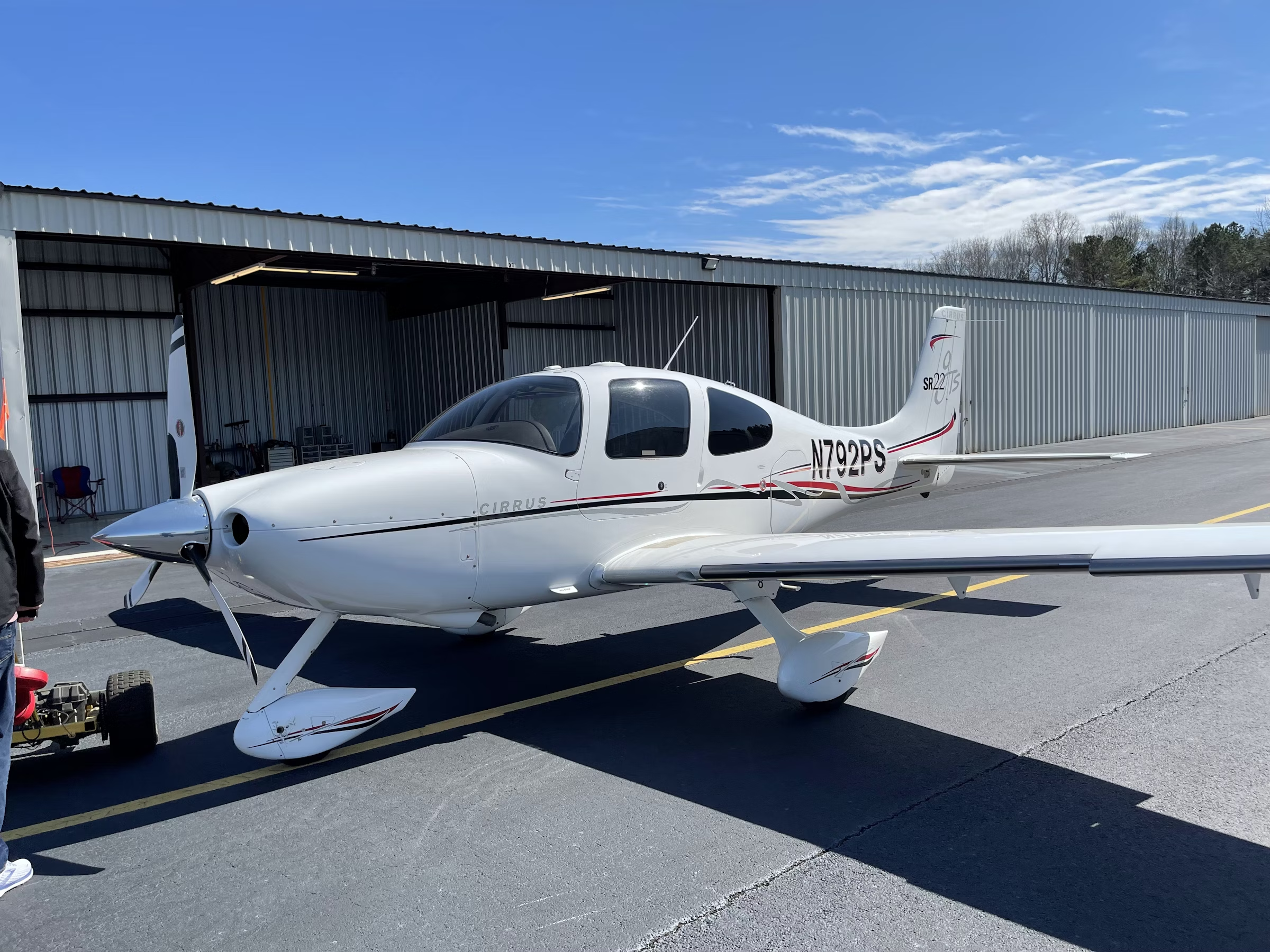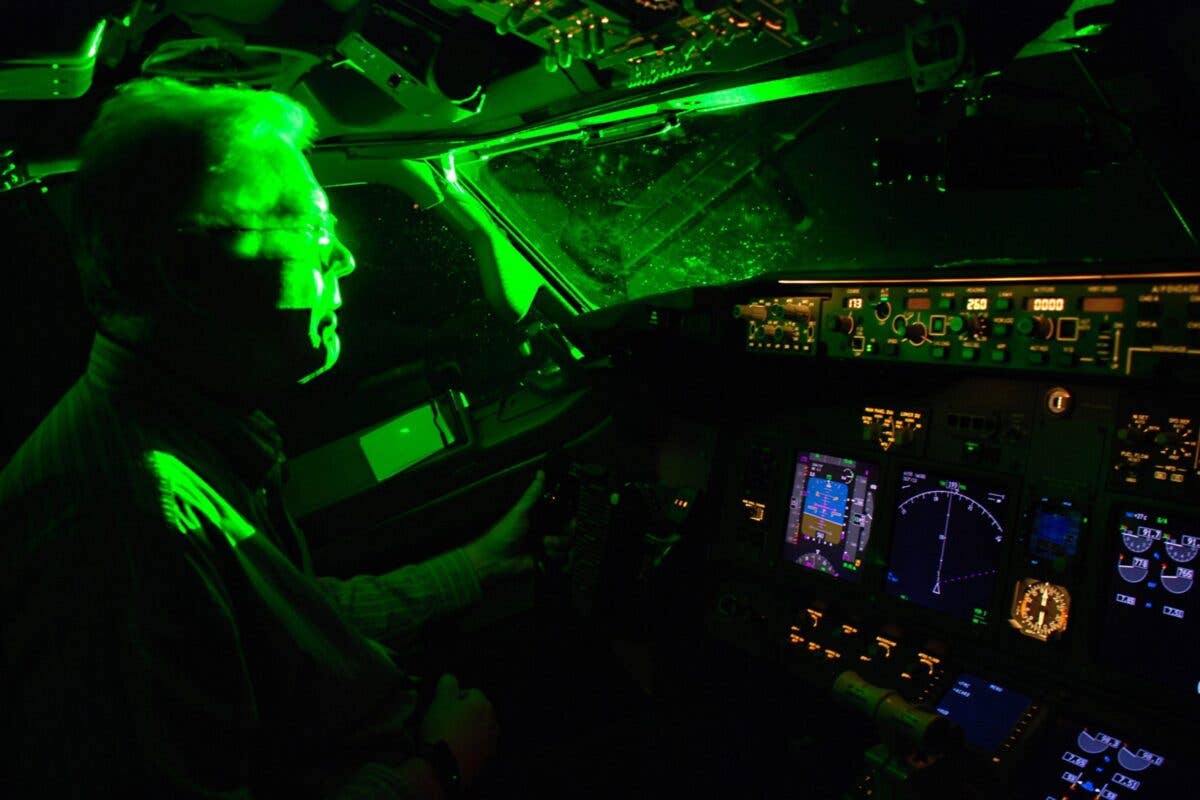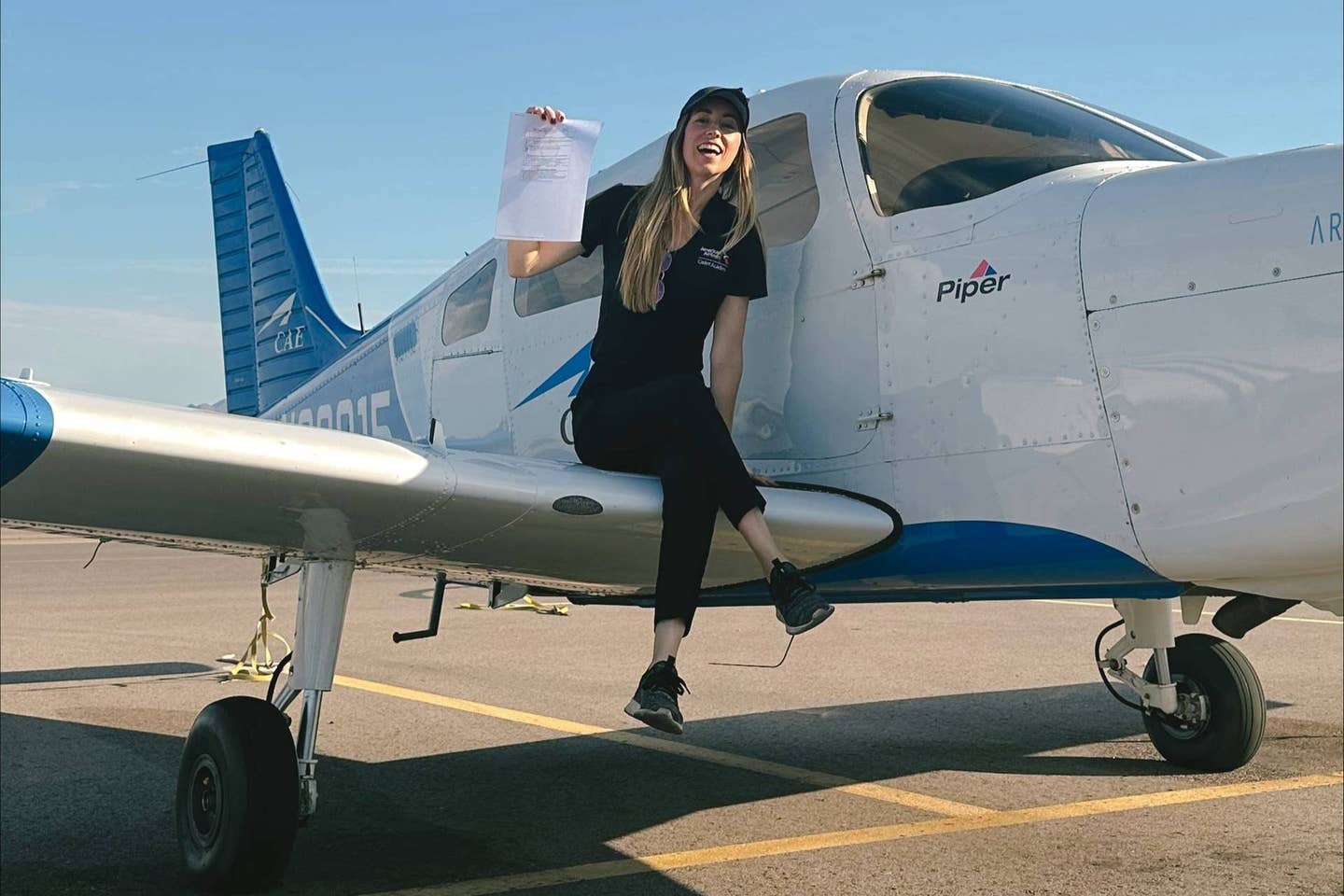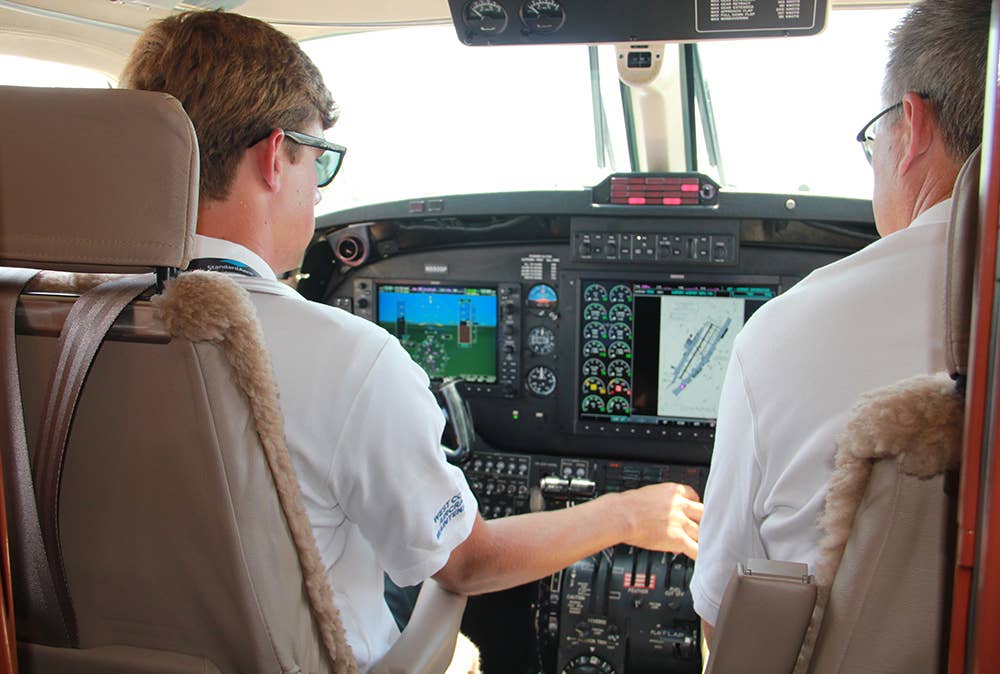Joby Commits to Deliver 2 Air Taxis to MacDill Air Force Base
The electric vertical takeoff and landing (eVTOL) manufacturer has now committed a total of four aircraft to U.S. Department of Defense sites.
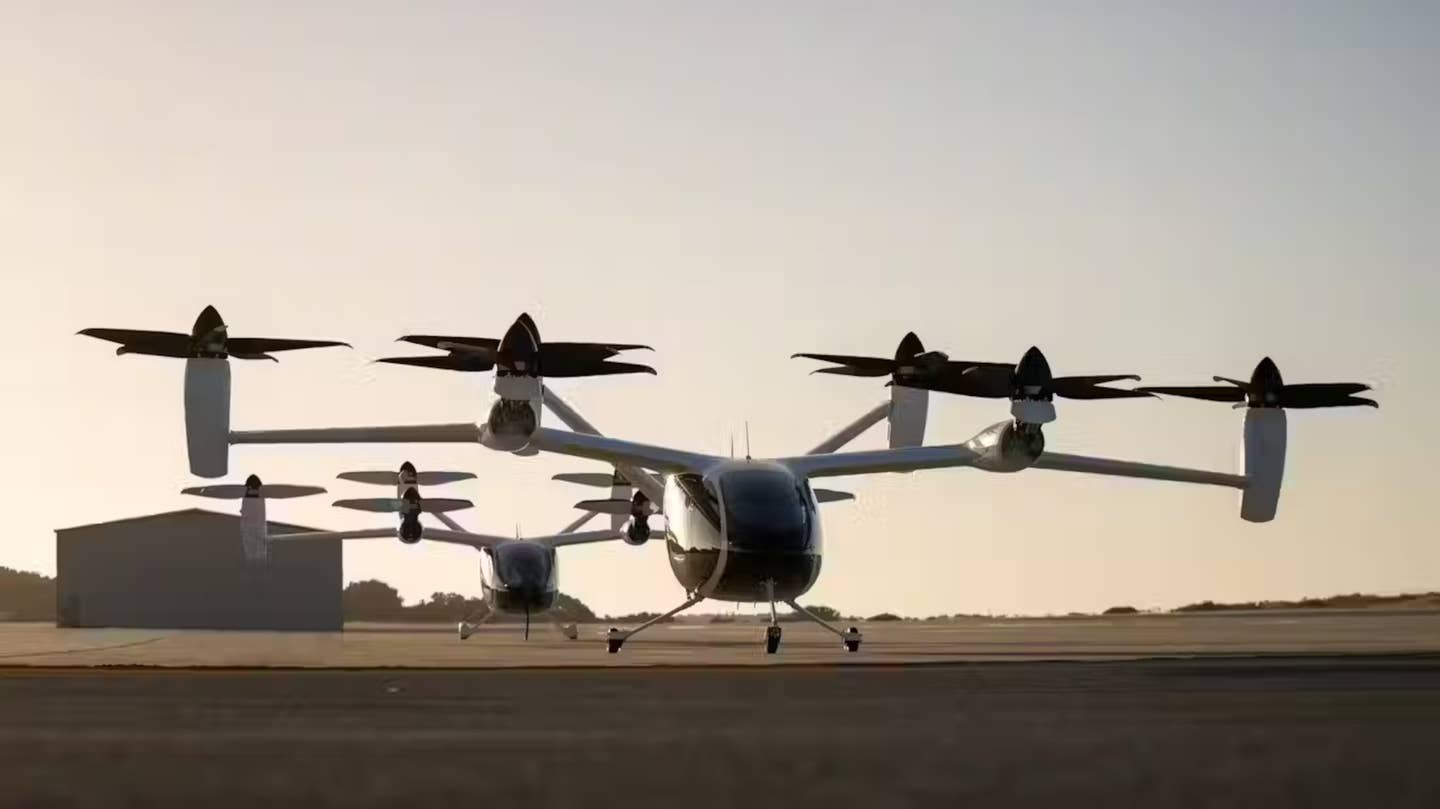
A pair of Joby prototype aircraft sit on the runway at the manufacturer’s flight test and pilot production facility in Marina, California. [Courtesy: Joby Aviation]
The U.S. Air Force has gotten a taste of electric vertical takeoff and landing (eVTOL) aircraft, and the agency is clamoring for more.
Joby Aviation, a manufacturer of eVTOL air taxis that it expects to begin operating in 2025, on Tuesday committed to deliver two aircraft to MacDill Air Force Base (KMCF) in Tampa, Florida, to be used for Air Force training and testing. The agreement is an expansion of the company’s $131 million contract with AFWERX, the innovation arm of the Air Force, which calls for the delivery of nine aircraft.
In total, Joby’s completed and current work with the U.S. Department of Defense represents a contract value of $163 million: a figure the firm claims is the largest in the eVTOL industry. Competitors Archer Aviation and Beta Technologies, among others, also own contracts with AFWERX.
MacDill Air Force Base is home to the U.S. Special Operations Command, U.S. Central Command, and several Air Mobility Command and logistics-focused units within the military. Air Force personnel will test and train with Joby’s aircraft on the base and in the surrounding area.
“The early investment and vision by the U.S. government in this critical technology is proving foundational as we continue our path toward commercial passenger service,” said JoeBen Bevirt, founder and CEO of Joby. “This work will provide Joby with valuable early operational experience, while providing the U.S. Air Force with firsthand understanding of the performance of our aircraft and its potential applications.”
Joby’s electric air taxi is designed to carry a pilot and up to four passengers, with a range of about 100 sm (87 nm) and cruise speed of 200 mph (174 knots). It produces zero operating emissions and a fraction of the noise of helicopters, according to the manufacturer.
Through AFWERX, the Air Force is able to experiment with aircraft such as Joby’s without spending billions on development and production. The manufacturers of those vehicles, meanwhile, receive a funding boost and take to the skies before obtaining FAA type certification. These early flights may provide critical data points to inform Joby as it refines its design, particularly when it comes to the experience of pilots.
“The Agility Prime team is very excited to progress through a novel acquisition approach,” said Lieutenant Colonel John Tekell, branch chief of Agility Prime, a division within AFWERX focused on vertical lift technologies. “These two aircraft at MacDill AFB allow the program to take the next steps in learning to maximize the operational opportunity of eVTOLs.”
For the first time, Joby at MacDill will work directly with DOD operational units. Personnel will use the aircraft to conduct logistics missions and test use cases in personnel transport, casualty evacuation, and support of security forces.
Joby in September delivered the first of nine eVTOL air taxis to the Air Force ahead of schedule, shipping it to Edwards Air Force Base in California. With one additional aircraft expected to be delivered to Edwards this year and two scheduled to be shipped to MacDill, the company has now committed a total of four aircraft to the department.
Air Force experimentation at Edwards is expected to inform the future test campaign at MacDill. In addition, Air Force, Marine Corps, and Army aviators, ground crews, and program managers have visited Joby’s flight test facility in Marina, California, for ongoing flight training.
Personnel are further exploring potential logistics, medical, and personnel transport applications for the aircraft. According to Joby, initial evaluations have proven the model’s high speed, low noise, and minimal maintenance and operating costs make it suitable for a wide variety of use cases.
Continued evaluations and pilot training will allow Joby’s air taxi to log critical flight hours before it enters commercial service, accelerating its development and, in theory, improving safety.
Recently, the manufacturer completed a key step toward that commercial rollout. The FAA in February approved Joby’s certification plans for various aircraft components such as structural, mechanical, and electrical systems, part of the company’s type certification process. The next phase involves submitting a curriculum to be used in for-credit FAA evaluations of the aircraft, which will most likely happen at the end of this year or the start of next.
If Joby can pass that test, it will move to the final steps. Type certification could follow soon after.
Joby is not the only eVTOL manufacturer relying on AFWERX to give it a lift throughout the process.
Competitor Archer, for example, has its own $142 million contract with AFWERX, under which it expects to deliver up to six aircraft to an Air Force base yet to be determined. Both Archer and Joby received $1 million in early payments from the department last year, representing each company’s first revenue.
Another competitor, Beta, in January wrapped up its first electric aircraft deployment for the Air Force at Eglin Air Force Base’s Duke Field (KEGI) in Florida.
In addition to working with private firms, AFWERX is collaborating with the FAA to share eVTOL testing capabilities and data. Another partnership with NASA aims to develop a nationwide digital operations center for air taxi services, which would help manage eVTOL traffic.
The interplay between manufacturers and these government partners will be interesting to watch as the FAA steers the U.S. toward the goals outlined in its Innovate28 blueprint. The document, while holding no legal standing, outlines the agency’s approach to air taxi services in the short term, culminating in scaled operations in time for the 2028 Olympic Games in Los Angeles.
Like this story? We think you'll also like the Future of FLYING newsletter sent every Thursday afternoon. Sign up now.

Sign-up for newsletters & special offers!
Get the latest FLYING stories & special offers delivered directly to your inbox

